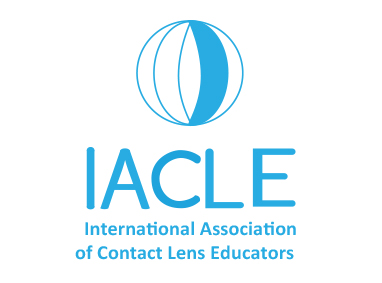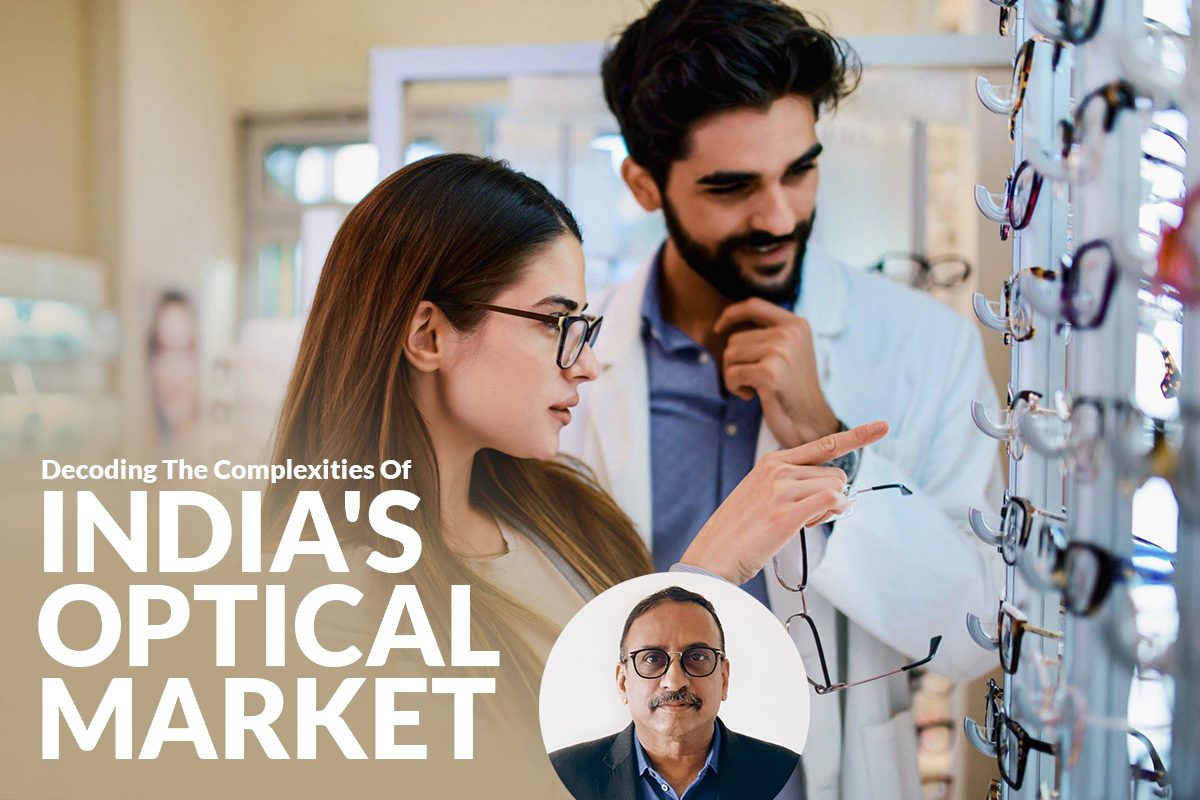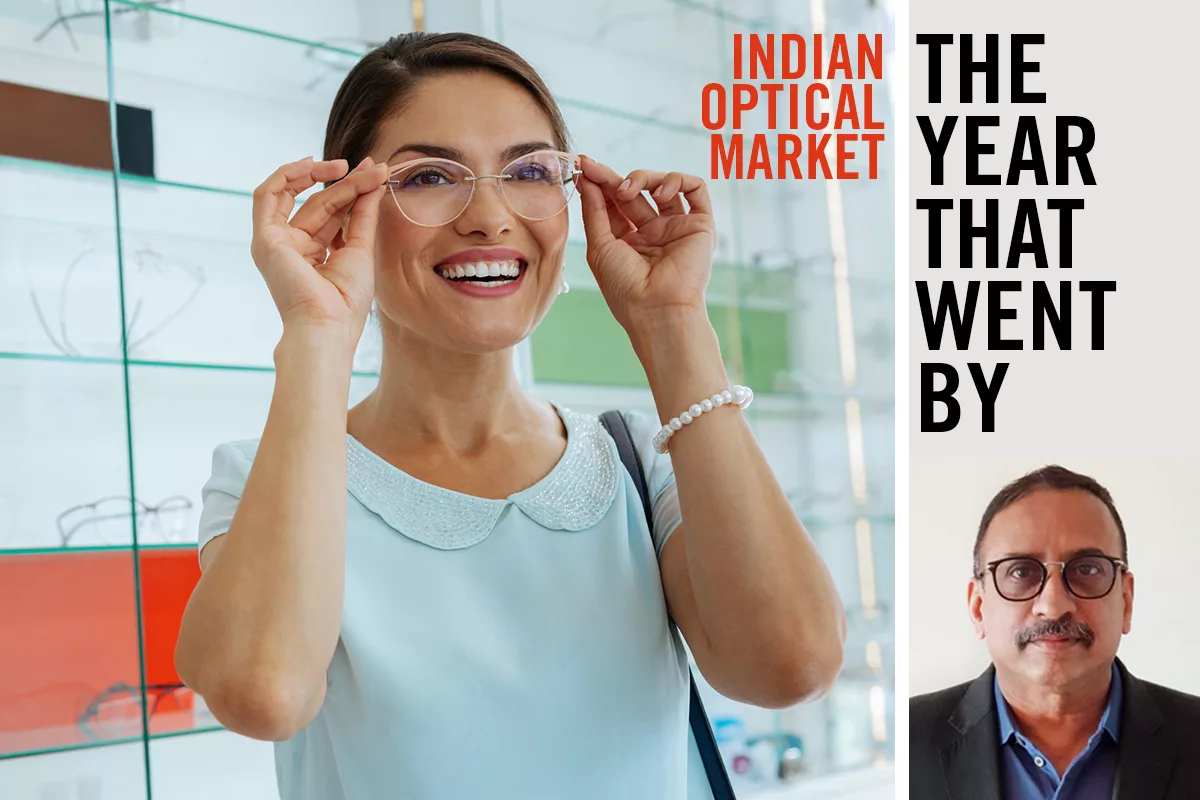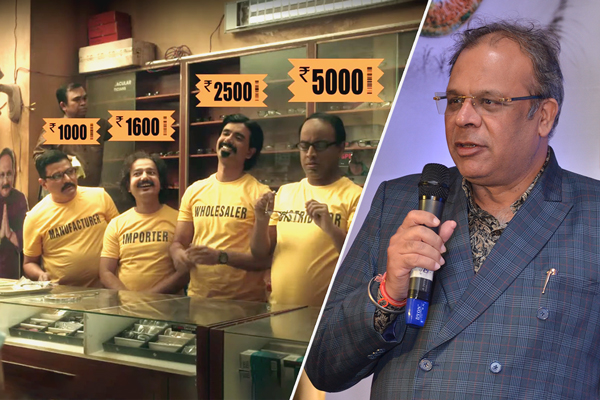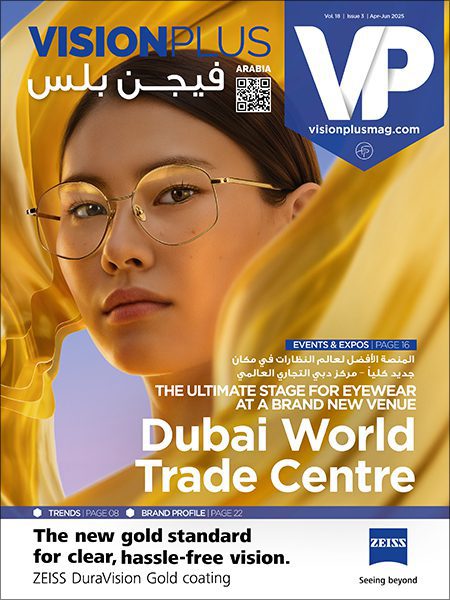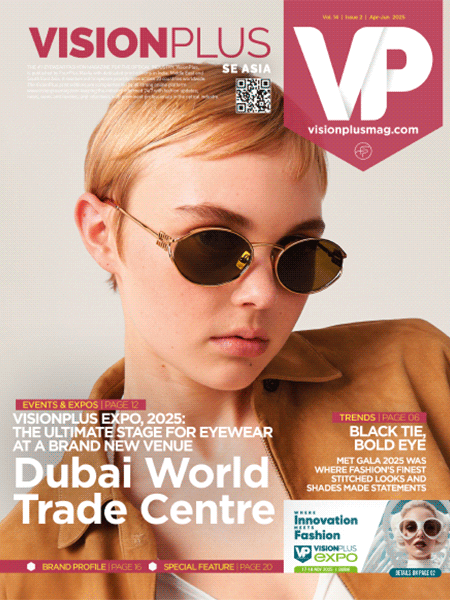The International Association of Contact Lens Educators is dedicated to raising the standard of contact lens education and promoting the safe use of contact lenses worldwide!
It is 9.30am on a Wednesday morning in the Peruvian capital, Lima. Guillermo Carrillo is beginning his weekly live broadcast – IACLE in the World – to more than 100 educators and practitioners across 10 countries in Latin America, and in the US. This week’s topic for discussion by key opinion leaders in the region is opportunities for fitting children with contact lenses.
At Lotus College of Optometry, Mumbai, in the Indian state of Maharashtra, Prema Chande is delivering an interactive seminar on soft contact lens care and maintenance to third-year students, using the New IACLE Contact Lens Course (New ICLC) and blended learning techniques.
Professor Chande’s students are instructed to go through the New ICLC lecture in advance. The class is then broken up into clusters to research all the soft lens care products available in the Indian market. Each group picks one lens care manufacture and presents their products, including the composition and USPs. This is then combined with the theory of the care and maintenance of soft contact lenses as an interactive session.
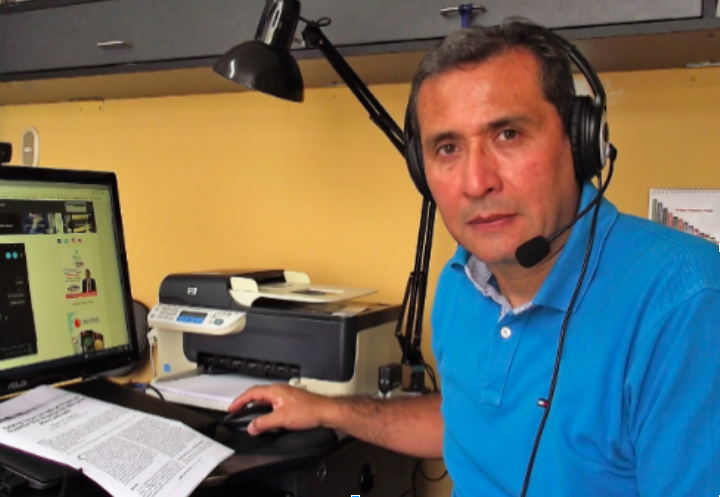
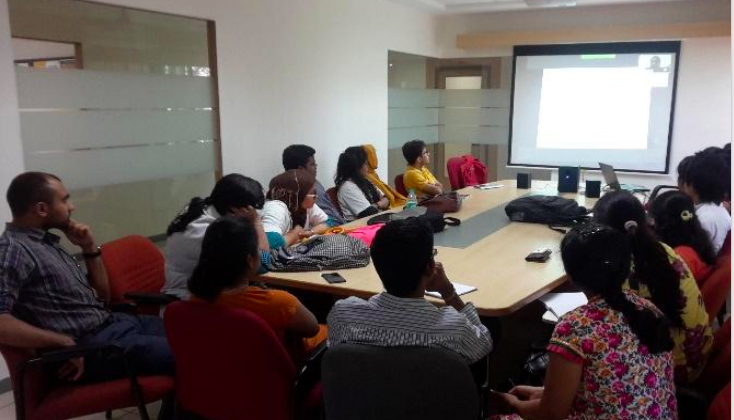
IACLE Americas Regional Coordinator Guillermo Carrillo (left) hosts a weekly radio broadcast, IACLE in the World, and students at Manipal University attend IACLE’s online lecture via the WebEx platform
These are just two examples of how the International Association of Contact Lens Educators (IACLE) is helping to deliver high-quality education in contact lenses and, increasingly, harnessing technology to share resources and experiences around the world.
What is IACLE?
Celebrating its 40th anniversary in 2019, IACLE is dedicated to raising the standard of contact lens education and promoting the safe use of contact lenses worldwide. Membership is open to all those involved in contact lens education, whether working in a recognised teaching institution, or in industry or practice that includes a teaching role.
Today IACLE has 839 active members in 76 countries, teaching at 570 institutions and reaching an estimated 20,000 students each year. Half of IACLE’s members are in its Global Priority Countries – China, India, Korea, Taiwan, Mexico, Brazil and Russia – identified in consultation with industry partners. At the close of 2017, IACLE had a total of 109 members in India
Currently, IACLE’s Executive Board is led by Dr Shehzad Naroo, who took over as President in 2011, and Professor Philip Morgan of the University of Manchester is Vice President. Board members and staff cover all three of IACLE’s global regions: Americas, Asia Pacific and Europe / Africa – Middle East.
Asia Pacific Regional President is Dr Rajeswari Mahadevan, head of the contact lens clinic at the Medical Research Foundation, Sankara Nethralaya and Associate Professor at the Elite School of Optometry, Chennai. Two members of the IACLE Education Team are also based in India: Director of Educational Programs Nilesh Thite in Pune and Global Education Manager Lakshmi Shinde in Bangalore.
What does IACLE do?
IACLE has developed a range of resources and programmes to help educators improve and maintain the quality of their contact lens teaching (Table 1). Most are delivered via its website, www.iacle.org. Regular local, regional and global events are also held.
IACLE’s flagship resource is the New IACLE Contact Lens Course (New ICLC), a series of 33 lectures in six modules, recently revised and updated by the world’s leading authorities in contact lenses to keep pace with developments. The latest addition is a three-lecture module on ‘Myopia and its Management’.
Table 1. IACLE Resources and Programmes New IACLE Contact Lens Course Fellowship of IACLE (FIACLE) IACLE Distance Learning Programme IACLE Student Trial Exam Interactive Case Reports and Image Collections Web Lectures and Discussion Forums Research Updates IACLE Travel Awards and IACLE Contact Lens Educator of the Year Awards Educator Meetings, Train-the-Trainer Programmes and Congresses on CL Education
The New ICLC is available exclusively to IACLE members to download from its website. Initially in English and now being translated into other key languages, presentations cover all aspects of contact lens education from the anatomy of the cornea to the business of contact lens practice.
The modules provide educators with the materials they need to teach a high-quality contact lens course and are also suitable for students and practitioners. Case reports and image galleries support the course.
The self-study IACLE Distance Learning Programme helps new educators improve their own contact lens knowledge and teaching skills. IACLE Student Trial Exams test final-year and postgraduate students’ progress and address areas of concern.
Fellowship of IACLE is unique in recognising accomplishments in contact lens education. FIACLEs are seen as leaders in their field, are frequently invited to speak at educational meetings, and often provide practitioner and student education within their professional communities. India fielded the highest number of candidates (27) in the most recent Fellowship Exam, held in November 2017.
IACLE also holds Educator Meetings and Train-the-Trainer Programmes to develop the teaching skills of educators and maintain their standard of knowledge. Communication between educator and student – and student and patient – is a particular focus. A 2017 Congress was held in Hyderabad, India alongside the 2nd World Congress of Optometry.
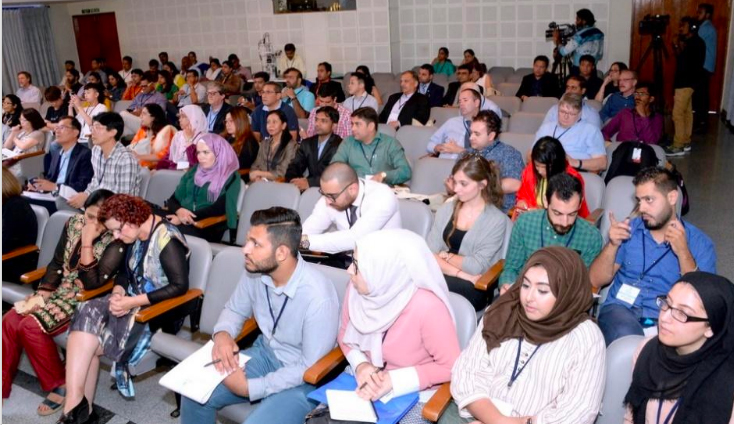
Annual IACLE Contact Lens Educator of the Year Awards and IACLE Travel Awards recognise achievements in contact lens education and allow members to travel to major international meetings. A monthly newsletter provides links to useful free resources. And Research Update – sent to IACLE and BCLA members – is a monthly summary of key publications appearing in the peer-reviewed literature.
Perhaps most importantly, IACLE has established a global network of contact lens educators to share resources and experiences, interact and learn from each other.
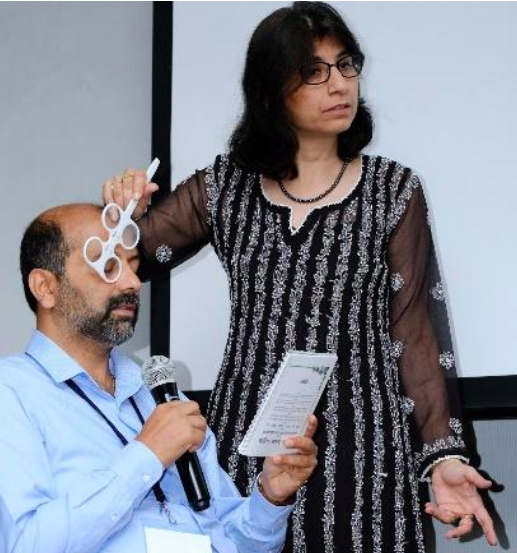
How can technology help?
Increasingly, IACLE is using technology to extend its reach, whether through Web Lectures broadcast live online to educators and students across countries or continents or via live streaming of its World Congress on Contact Lens Education, most recently held in Manchester, UK.
Web Lectures, delivered via the WebEx platform, have allowed up to 14 institutions to take part in a lecture. IACLE India was a pioneer in this approach, broadcasting live to priority institutions across India. And educators in China can now participate in lectures through WeChat. On this platform – which is real-time – members and industry share their teaching experiences and educational materials.
The 2015 Third IACLE World Congress (Shaping the Future of Contact Lens Education) examined the use of blended learning and technologies such as Evernote, Blackboard, Eliademy, Canvas, Explain Everything, Nearpod and Showbie that members could bring to their teaching. The Congress also looked at some of the issues common to educators worldwide.
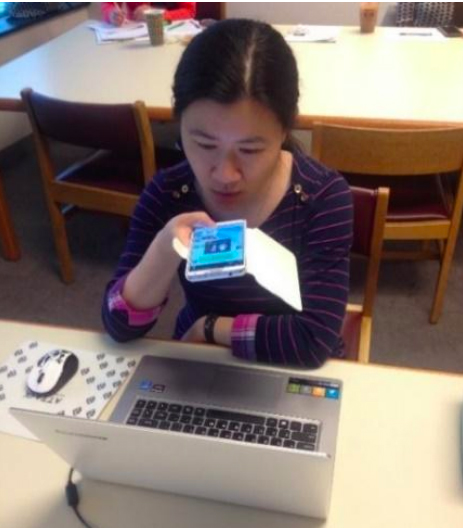
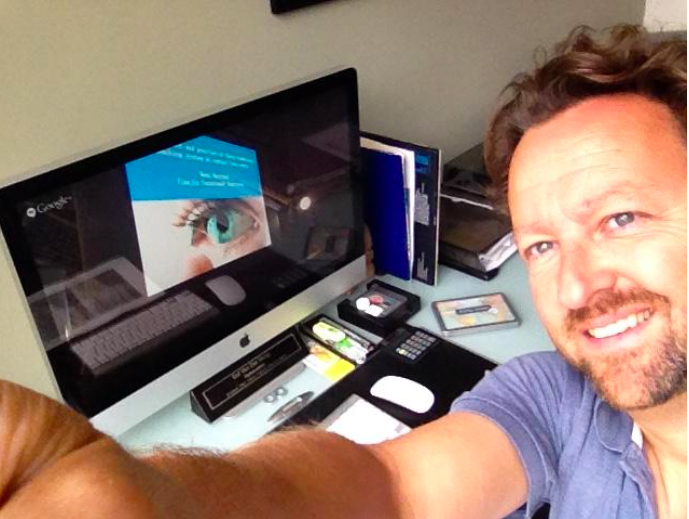
Educators in China participate in lectures on WeChat (left) and Dr Eef van der Worp from the Netherlands (right) took part in the Third IACLE World Congress via live streaming
One of the greatest challenges was providing hands-on experience with real patients for large numbers of students. Delegates learned about a new school at Deakin University in Australia where, under a unique case-based optometry programme, students worked together in teams.
The Congress also offered some potential solutions for the future, with virtual and augmented reality devices that could create authentic learning opportunities. In the US, the University of Houston was using a simulation lab to demonstrate refractive techniques to students, and in China, a virtual fitting center was among the technology already in use.
Who benefits from IACLE?
IACLE’s structured approach to contact lens education has the potential to benefit all those involved in contact lenses and also has implications for optometric education in general.
Educators and their students worldwide can benefit from a consistently high standard of education and access to essential teaching, learning and assessment resources. The profession and employers can benefit from practitioners graduating with appropriate theoretical knowledge and practical skills, and the ability to take an evidence-based approach to practice.
Industry can also benefit from IACLE increasing the number of skilled contact lens practitioners throughout the world, thereby facilitating the use of contact lenses. But the ultimate beneficiaries should be patients themselves, by helping to ensure the proper fitting and safe use of contact lenses worldwide.
There is evidence that in India higher levels of education among practitioners, greater experience and FIACLE status are associated with advanced contact lens fitting.1 Optometrists graduating from Indian institutions with greater IACLE collaboration and support report greater satisfaction with their training, especially with theoretical aspects.
What educators say about IACLE… ‘IACLE has shaped my career as a contact lens educator and practitioner. Without IACLE resources, my contact lens teaching would have been impossible. IACLE resources provide guidelines in contact lens education as well as patient management.’ Runa Mazumer, Vidyasagar College of Optometry & Vision Sciences, Kolkata ‘IACLE provides excellent teaching materials in the form of modules, Web Lectures and newsletters, which have helped me to prepare lectures for students and kept me updated with the latest contact lens knowledge.’ Aditi Deshpande, Bharathi Vidyapeeth School of Optometry, Pune ‘IACLE helped me to learn how to prepare a syllabus, lectures, continuing medical education (CME) and workshops, and supported me with all its resources. Srikanth Dumpathi, Brien Holden Institute of Optometry and Vision Sciences, Hyderabad
Many IACLE members and Fellows are also involved in contact lens research and regularly have their work published in peer-reviewed journals. Research ranges from basic science and randomised controlled trials, to studies of the scope of practice in individual countries and annual reports on international prescribing trends.
IACLE’s network helps facilitate collaboration in research as well as in education. A group of FIACLEs in India, led by Nilesh Thite and Lakshmi Shinde, recently published a study challenging traditional approaches to contact lens recommendation.3 And members were recruited for a Europe-wide evaluation of rigid gas-permeable fitting and education in 50 institutions across 15 countries.4
In March 2018 IACLE surveyed all its members to determine their use of and attitudes to current resources, programmes and events, and what they would like IACLE to provide in future. The results will be used to set the agenda for contact lens education around the world over the next five years and beyond.
In conclusion, a radio broadcast from Peru or a student seminar at Lotus College may seem a world away from everyday optometric practice. But IACLE’s global approach to ‘teaching the teachers’, along with the sharing of resources and experiences worldwide, is one from which the profession can benefit and optometric education as a whole could usefully learn.
Acknowledgments
IACLE acknowledges the support of its industry sponsors: Platinum Sponsor Alcon, Gold Sponsor CooperVision, Silver Sponsor Johnson & Johnson Vision, Bronze Sponsor Bausch + Lomb and Donor Sponsor Euclid Systems. Also acknowledged for support are the Centre for Ocular Research & Education, AOCLE and BCLA. A version of this article first appeared in the UK publication, Optician.
References Thite N, Noushad B and Kunjeer G. Contact lens prescribing pattern in India – 2011. Cont Lens Anterior Eye 2013, 36 182-5. Thite N, Gogate P and Kunjeer G. Adequacy and relevance of contact lens training in India. Cont Lens Anterior Eye 2013;36:2 e24. Thite N, Shinde L, Sawant P et al. Proactive contact lens prescribing – which approach is more effective? Cont Lens Anterior Eye 2018 doi: 10.1016/j.clae.2018.01.001. [Epub ahead of print]. Christie C and Morris J. RGP fitting and education across Europe. Poster presentation at European Academy of Optometry and Optics, April 2013. Dr Shehzad Naroo is Reader at Aston University, Birmingham UK and IACLE President. Alison Ewbank is responsible for public relations at IACLE.

